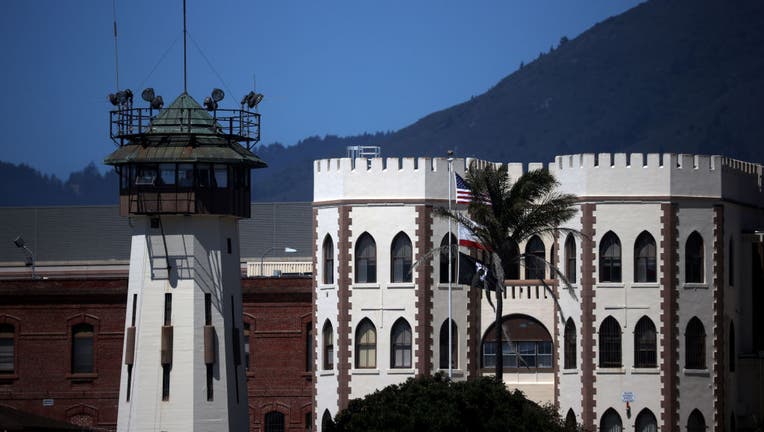Prop. 17: California restores the rights of felons on parole to vote

SAN QUENTIN, CALIFORNIA - JUNE 29: An exterior view of San Quentin State Prison on June 29, 2020 in San Quentin, California. San Quentin State Prison is continuing to experience an outbreak of coronavirus COVID-19 cases with over 1,000 confirmed case
LOS ANGELES, Calif. - A ballot measure restoring the right to vote for felons on parole was decisively passed by California voters on Tuesday.
Proposition 17 will change the state Constitution to give the vote to an estimated 50,000 people who supporters said have paid their debt to society and should be able to choose their representatives and shape the policies that affect their daily lives.
“This is a victory for democracy and justice,” said Taina Vargas-Edmond, chair of the Yes On Prop. 17 campaign. The proposition had nearly 60% of the vote after more than 11 million ballots were counted.
RELATED: See complete results from all California propositions
Meanwhile, a separate ballot measure that would allow some 17-year-olds to vote in primary elections was trailing. “No” votes for Prop. 18 were at about 54% with more than 11 million ballots counted.
Jose Grano Gonzalez, a Los Angeles resident whose right to vote is now restored with the approval of Prop. 17, thanked his fellow Californians “who used their voice, and voted to ensure that mine can be heard, too.”
“Our country boasts that its citizens have a direct, distinct voice in the conversation about its future,” he said in a statement. “And now thanks to millions of California voters, today we are that much closer to achieving that reality.”
California felons who had completed their prison sentences had been long denied the right to vote until they finished parole.
Among the measure’s opponents was Republican state Sen. Jim Nielsen, who said restoring rights early to felons would be a slap in the face to their victims, who should have the assurance that criminals are punished fully.
“The victims cannot so blithely put the crimes behind them,” Nielsen said. “The rest of society deserves to know that the just consequences of the sentence has been duly served.”
John Windham, who’s on parole after serving 30 years behind bars for second-degree murder, insisted that parole should not be further punishment.
“The punitive part of my sentence ended when I walked out of prison,” Windham said. “Parole is to help me reintegrate into society.”
Windham, 51, said he’s committed to making amends for mistakes he made when he was 19. That includes becoming civically engaged within his community in Sacramento by voting on the issues that matter to him.
“I pay my taxes. If you’re going to take my check, I’m going to need to represent myself,” he said. “You’re saying I’m at the table, but right now I don’t have a voice.”
The advocacy group Yes On 17 said research has found that felons are less likely to reengage in criminal activity if they “feel that they are valued members of their community and that their voices matter and concerns are addressed.”
The civic engagement of young people is part of the reason supporters are urging the passage of the trailing Proposition 18, which would allow 17-year-olds to vote in primaries and special elections, provided they turn 18 by the November general election. At least 18 states and Washington, D.C., have adopted laws that let people younger than 18 to vote in certain circumstances.

